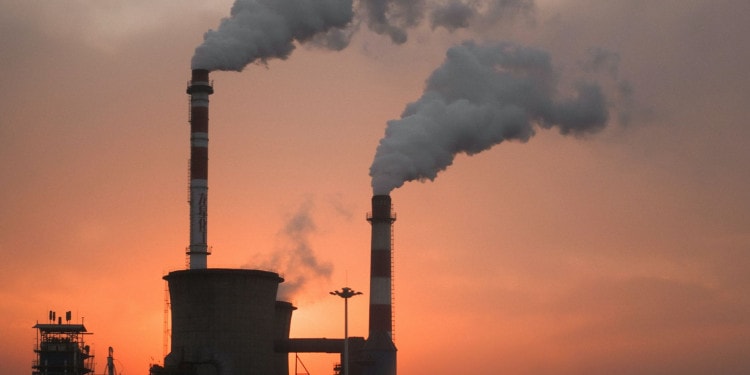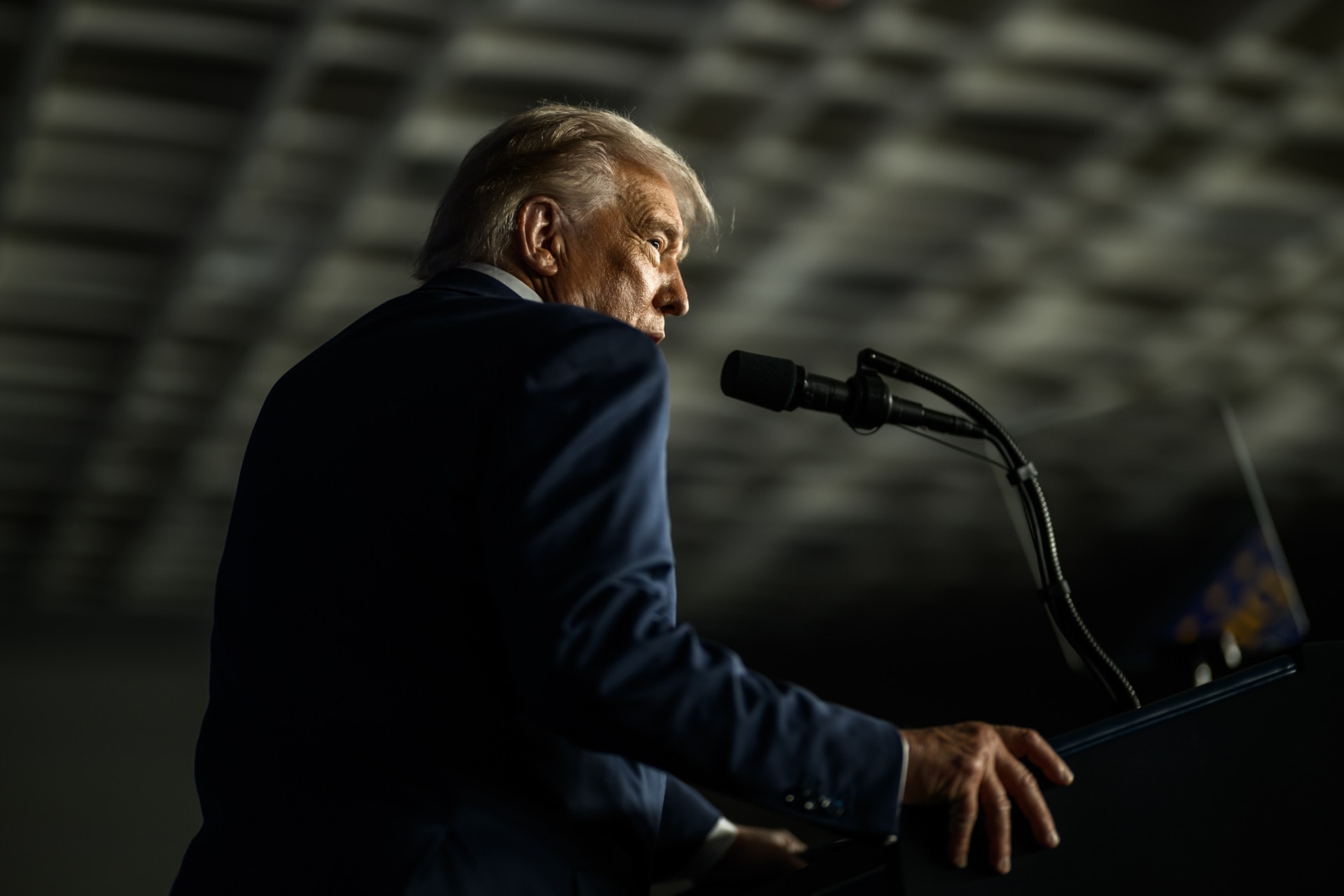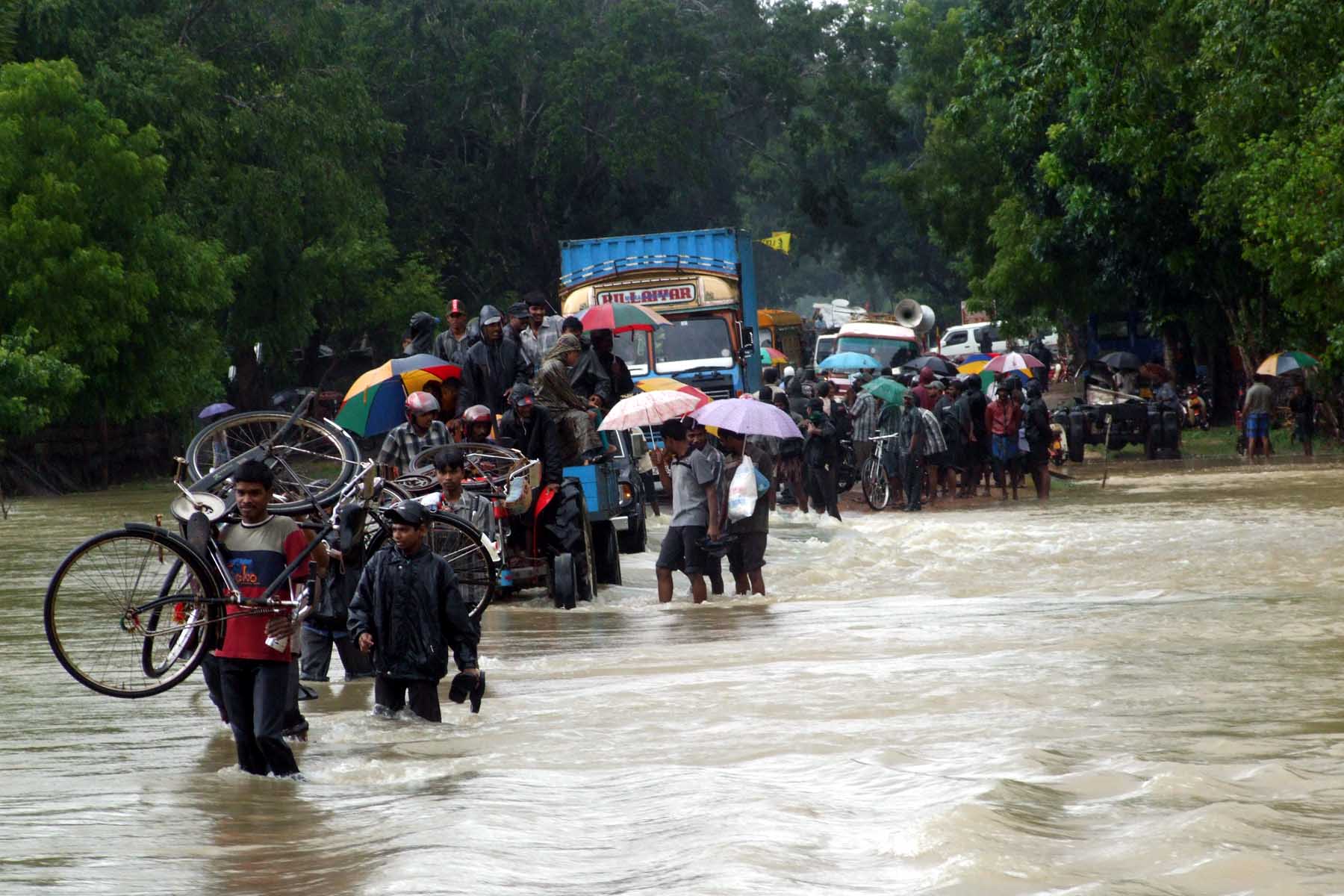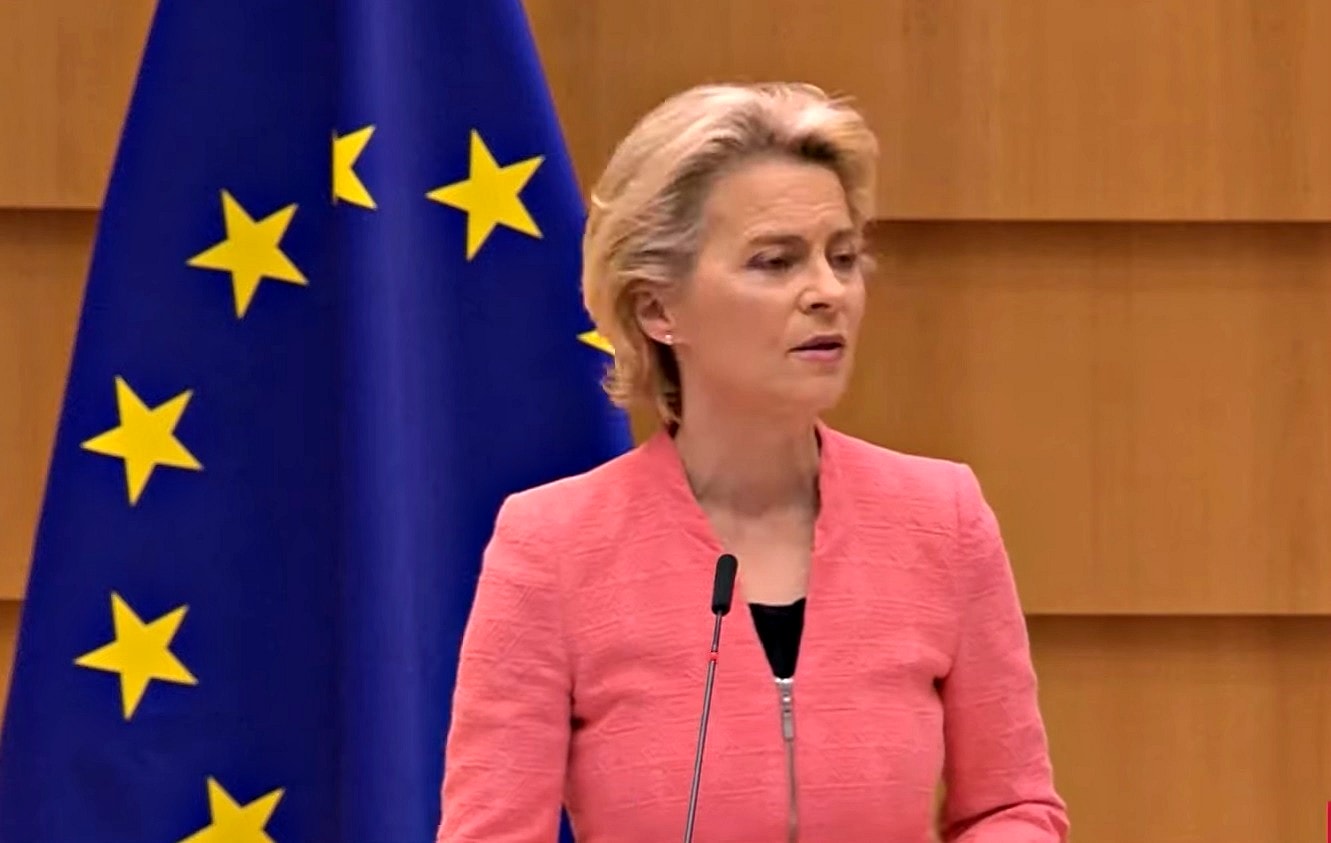UN Secretary General António Guterres has stressed the need for investing in and prioritising a green recovery out of the COVID-19 pandemic by drastically cutting pollution or humanity is “doomed.”
The Coronavirus crisis has meant that much of the climate change action planned for 2020 has been put on hold. High profile summits have been postponed while leaders directed their focus inwards at containing the virus.
Despite this, Guterres urges governments to use this time as an opportunity to not just rebuild but to rebuild better with “transformational” policies to cut emissions and move societies away from fossil fuel use.
In an interview with Covering Climate Now, he argues that the international response witnessed as COVID-19 swept the globe earlier this year is a prime example of the crucial need for a coordinated effort from countries when attempting to tackle the climate crisis.
“I think the failure that was shown in the capacity to contain the spread of the virus — by the fact that there was not enough international coordination in the way the virus was fought — must make countries understand that they need to change course,” Guterres remarked.
They need to act together in relation to the climate threat that is a much bigger threat than the threat of the pandemic in itself — it’s an existential threat for our planet and for our lives.
Guterres insists the way forward is for “pollution and not people” to be taxed and for the end of fossil fuel subsidies.
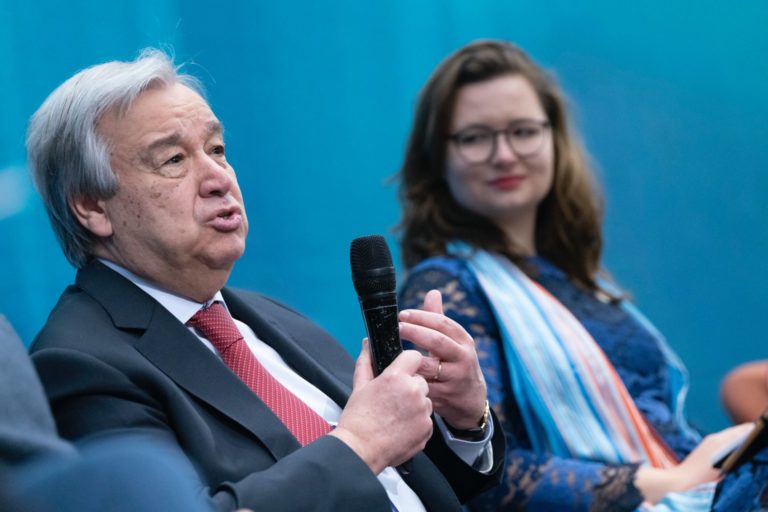
He is optimistic that industry change is already heading in the right direction as the renewable energy sector is growing rapidly. He explains that in many situations it is now cheaper to build solar plants than to keep running already-existing coal plants in large numbers and that the financing of coal power plants abroad is starting to be questioned in some countries. But this slight shift in priorities is by no means happening fast enough.
“The right decision is to massively invest in renewables and to have a transformational policy in the economy, and that is not only necessary, that is cheaper, that is more profitable, that creates more jobs, that is good in all aspects,” Guterres argued.
Related Articles: G20 Recovery Benefits Fossil Fuels More Than Clean Energy | Accelerating the Race to Zero Carbon
He also expects “there will be lots of bailouts” in the industry due to COVID-19. But adds, “let’s make those bailouts dependent on the acceptance by companies that they will become carbon neutral in 2050. At the same time, lots of taxes are imposed on our income and on our salaries. Let’s shift taxes from salaries to carbon. Let’s put a price on carbon, and that will of course make investors decide differently.”
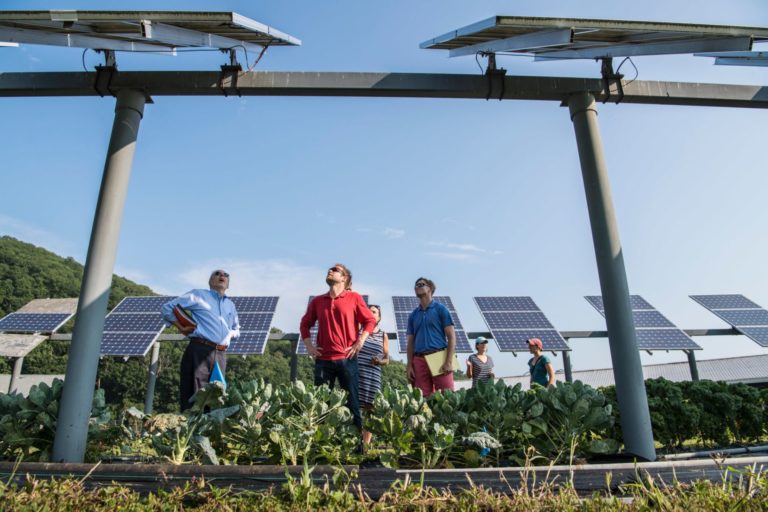
Clear objectives for a pathway to cap the rise in global temperature to “well below” two degrees celsius have already been committed to by many nations long before the Pandemic. The most significant collective commitment being the Paris climate agreement made in 2016. But one of the biggest emitters, the U.S., pulled out of this commitment. U.S. President Donald Trump made the decision back in 2017 and the country is due to leave on Nov. 4, 2020, right after the presidential election.
120 countries have committed to carbon neutrality by 2050, but they only contribute to 25% of the world’s pollution. Guterres emphasises that the responsibility mainly falls on the six biggest culprits of greenhouse gas emissions— China, the U.S., Europe, Russia, India and Japan.
“There is this opportunity for countries to come together with these very clear objectives,” Guterres commented.
We have never been as fragile as we are, we never needed as much humility, unity and solidarity as now.
The devastating effects of climate change are no longer a distant warning. Temperatures are rising very quickly, the last five years we had the hottest five years in history and we have the highest concentration of greenhouse gases in the atmosphere of the last three million years.
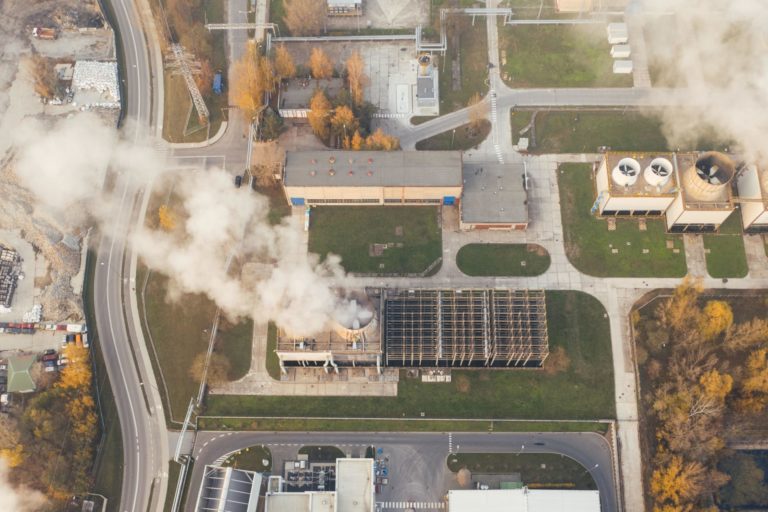
Guterres says this should be a wake up call for everyone: “We are running out of time, so we need to act very quickly.”
“It’s time to wake up,” he remarked. “It’s time to understand that we can no longer lose more time doing not enough. Let’s not forget that if things will go on as they are, we will come to the end of the century with three to five degrees of increase of temperature in relation to pre industrial levels. And that would be absolutely catastrophic.”
He goes on to warn, “the expectations that we have in relation to the next five years about storms, about drought and about other dramatic impacts in the living conditions of many people around the world are absolutely terrible.”
Because various aspects of climate change often tend to enhance each other, the speed at which these changes are happening is also accelerating. This becomes a vicious cycle resulting in increasingly dramatic impacts of climate change.
The UN still believes it is possible to reach the safer goal of a 1.5 celsius cap in temperature rise, but to achieve this global emissions need to fall 7.6% annually for the next ten years.
The implications of international shutdowns as a result of the Pandemic means global emissions this year could be reduced by up to eight percent but scientists have warned that without substantial systemic change in how our society powers and feed ourselves, the drop in pollution won’t be sustained and therefore will have little impact in the long run.
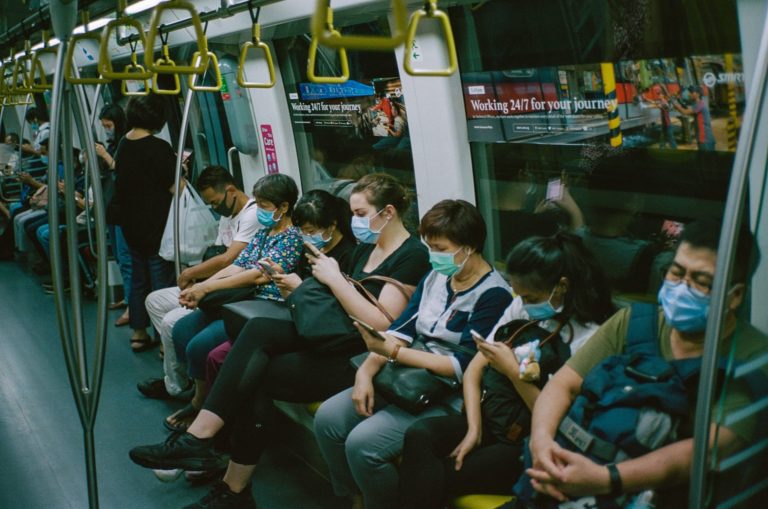
Though an overhaul of this magnitude may seem inconceivable to some, Guterres believes it is more achievable than we might expect. This is because the pandemic has shown society’s capacity to adapt, implement and become accustomed to huge lifestyle changes in a very limited amount of time.
“The good news is that we have shown with COVID-19 that we can adapt very quickly — there is a very strong reason for us to show the same capacity to adapt,” said Gueterres, referring to the climate change threat.
Even without a universally cohesive effort from all nations, Guterres remains hopeful this time offers a valuable opportunity that can be utilised by both leaders and the public for the good of the earth.
“Even if different countries have different strategies, I am hopeful that the pressure of the business community that is becoming more and more enlightened on this, of the civil society and of the youth will force governments to move much more decisively in relation to climate action,”
When asked if we should be aiming to return to normality after the Pandemic, Guterres replied, “I don’t want to go back to a world where biodiversity is being put into question, to a world where fossil fuels receive more subsidies than renewables, or to a world in which we see inequalities making societies with less and less cohesion and creating instability, creating anger, creating frustration,”
“I think we need to have a different world, a different normal and we have an opportunity to do so.”
Editor’s Note: The opinions expressed here by Impakter.com columnists are their own, not those of Impakter.com. — In the Featured Photo: Smoke coming from factory chimney contributing to air pollution. Featured Photo Credit: Alexander Tsang / Unsplash


